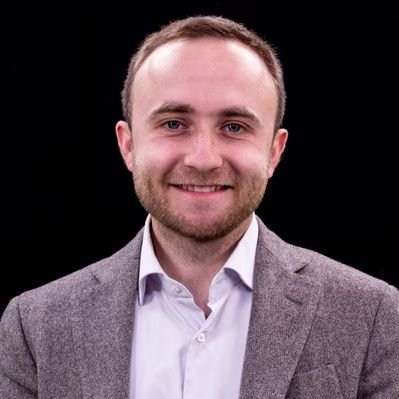For two years, the war in Ukraine has been raging. More than ten thousand civilians have been killed, including children.
Fr. Oleksandr Zelinskyi, OMI, Director of EWTN Ukraine, stated, "We believe God does not want this war. God doesn't want this suffering, these deaths, and He wants peace."
On the second anniversary of Russia's invasion of Ukraine, Church leaders once more have called for peace and an end to the global arms trade.
In the Angelus Address of February 25th, Pope Francis noted emphatically, "How many victims and injured people, how much destruction, anguish, and tears in a period that is becoming terribly long and the end of which cannot be seen yet!"
The Community of Sant'Egidio has provided aid and relief on the ground. The lay Catholic association, founded in Rome, is dedicated to social service and engages on an international level in peace initiatives.
Paolo Impagliazzo, the community's secretary general, shared with EWTN what they have been doing since the start of the war two years ago. He said, "Starting immediately after the war, from March 7th, 15 days after the beginning of the Russian invasion in Ukraine, the first shipment of humanitarian aid departed from Italy to Ukraine. We supported the most vulnerable, those who had to leave their homes, the refugees."
The United Nations High Commissioner for Refugees reports that some six million people, primarily women and children, have fled Ukraine. At the same time, some families have returned; most live abroad as refugees, hosted by private families or charitable organizations.
Paolo Impagliazzo told EWTN that the Community of Sant'Egidio also "supported the evacuation, for example, of disabled or elderly individuals as well as many children. We also opened shelters for the elderly and disabled in the western part of the country in the city of Lviv."
The war's impact on children has been a significant concern. The United Nations Children's Aid Agency has documented that nearly 600 children have been killed in the war, and 1,224 have been injured to varying degrees. In contrast, thousands of others, primarily from occupied cities, have been forcibly deported to Russia.
Russia claims to be rescuing the children from war zones. The Vatican sent an envoy of peace, Cardinal Zuppi, and he has succeeded in bringing many children back to their families.
The Community of Sant'Egidio organized the School of Peace initiative to work with the kids who have suffered from the trauma of war.
"There was a child," Paolo Impagliazzo explained, "who could no longer relate to or interact with other children. He would either stay silent or scream due to the traumas he experienced during the war. He had lost his friends and didn't know who to play with. Through our School of Peace initiative, this child found a way to communicate with other children. He no longer stayed silent or screamed; instead, he found a peaceful way to interact, play with others, and find a new family."
As the war enters its third year, the mood in Ukraine has changed from one of defiant resistance to a sense of international solidarity. But, as the long toll of war continues, many are beginning to experience despair and fatigue. Director of EWTN Ukraine, Fr. Oleksander Zelinskiy, has been serving the people since the beginning of the war and shared in an interview with EWTN correspondent Colm Flynn how the war has affected the faith of the faithful.
Fr. Oleksandr said, "We can see from one side people try to have their ordinary lives, but on the other side, this is what we can't see. It's like what is inside people, that there is this…" – "Heaviness," interjected Colm Flynn. "Yes, heaviness," Fr. Oleksandr continued, "something which is in the heart of people. We can't see everything; this is in the heart of all the people."
Father emphasized, "God is with us, "and he will help us rebuild and renew what is destroyed.
Another Catholic organization, the Order of Malta, has been providing humanitarian aid on the ground in Ukraine.
Antonio Gazzanti Pugliese Di Cotrone, Ambassador of the Sovereign Military Order of Malta in Ukraine, explained his experience, saying, "I noticed at the beginning a strong will of the population to defend their territories, their homes, their life, their style of life. And I would like to emphasize that at this moment, after two years of war, you can also see people's worry. The question is when we can find a way out. When will the war have an end?"
In another interview by EWTN Vatican with the Secretary General of Sant'Egidio Community Paolo Impagliazzo, Andreas Thonhauser, EWTN Vatican Bureau Chief, asked, "What can we do? What can the people there do to help bring peace in Ukraine?"
Paolo Impagliazzo said, "I respond as a Christian, and therefore, I believe that the first work, I truly say it, the first work is that of praying. There is a need to invoke peace from God. Often, men do not know how to give themselves peace; there is a need to ask for it. We must invoke peace."
Adapted by Jacob Stein

Alexey Gotovskiy serves as a journalist, producer, and manager at the EWTN Vatican Bureau. Born in the former Soviet Union, he holds a graduate degree in Church Communications from the Pontifical University of the Holy Cross and has produced over 200 episodes of EWTN "Vaticano," covering the life of the Universal Church.








